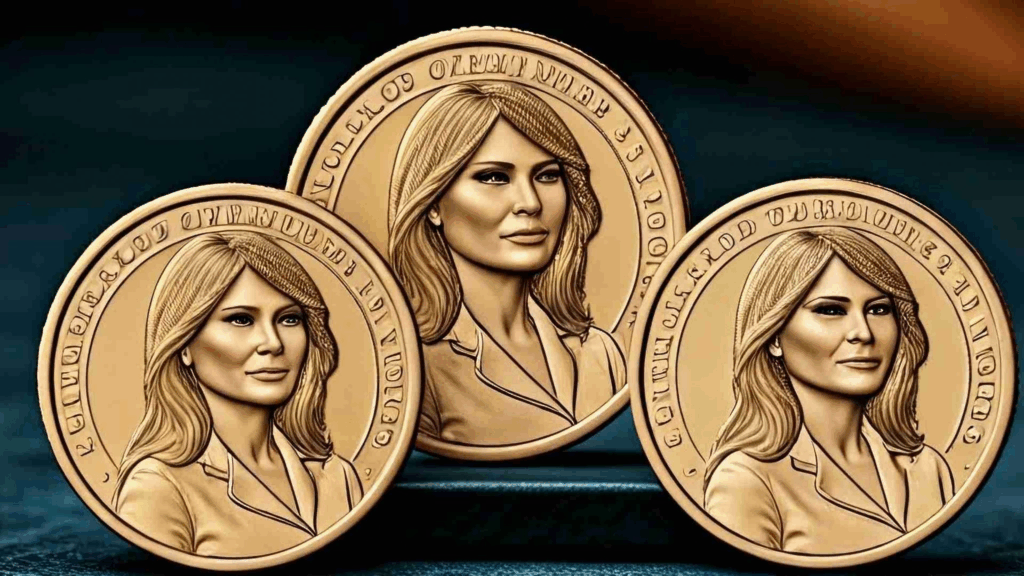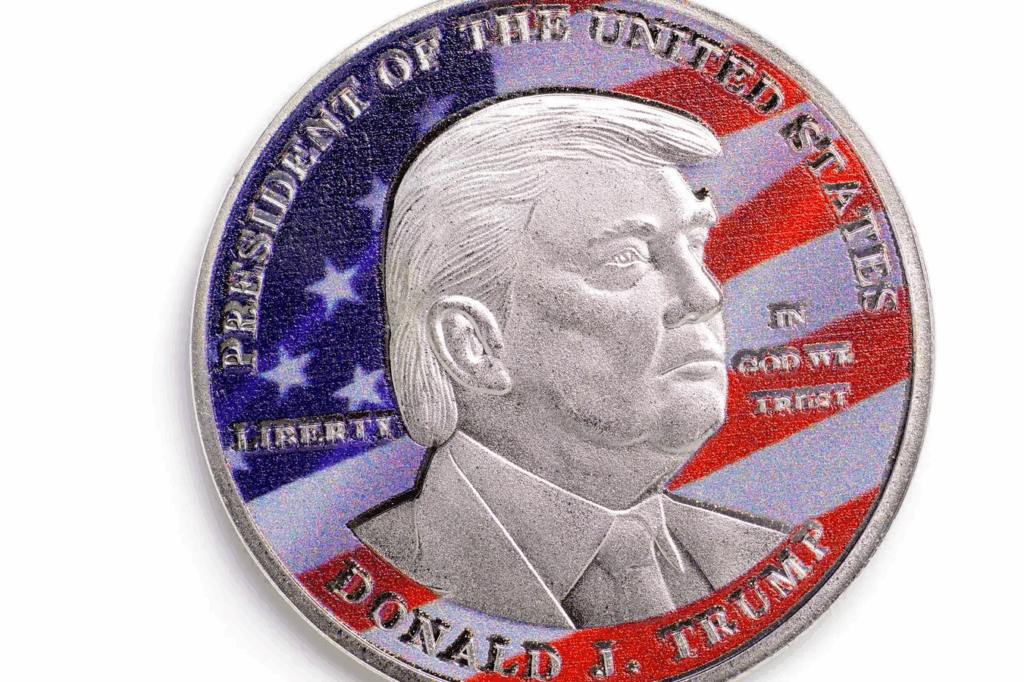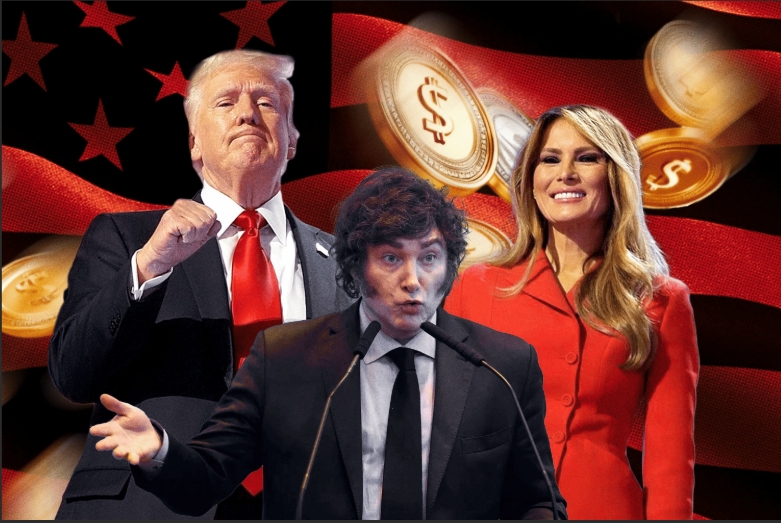? Since ancient times, a coin has been not only a medium of exchange but also a symbol of power. Roman denarii bore the faces of emperors, medieval thalers displayed the coats of arms of kingdoms, and modern national currencies still carry the political and cultural code of the nation.

Today, a “coin” has changed its form: instead of metal — blockchain, instead of minting — a digital signature, instead of portraits of monarchs — corporate logos or images of media personalities. But the essence remains the same: every coin reflects who stands behind it.
Libra, Melania, and Trump are three different examples of how money, technology, and politics intertwine in the 21st century.
LIBRA: coin or political symbol?
In 2019, Meta (then still Facebook) announced the cryptocurrency Libra, and the world held its breath in anticipation of a financial revolution. Mark Zuckerberg wanted to create global “digital money” that would replace bank transfers and compete with traditional currencies.

Libra did not have a “physical coin,” but the project had its own logo and brand mark. The main symbol was three wavy horizontal lines ≋, with the word libra underneath. Color scheme: mostly dark purple background with a white logo. Visually, it looked minimalist, in the style of Facebook/Meta.
The project was backed not only by Facebook but also by a whole alliance of corporations: Visa, Mastercard, PayPal, Uber, Spotify, and other giants. The idea was that Libra would be backed by a basket of real currencies to remain stable and avoid the fate of “volatile” Bitcoin or Ether.
Governments and central banks opposed it:
- The US feared undermining the dollar;
- The EU warned about money laundering risks;
- Regulators reminded that “money monopoly is a state prerogative.”
In the end, Libra never took off. It was later relaunched as Diem, but that did not save the project. However, the very appearance of Libra showed that IT corporations seriously aspire to become “central banks of the future.”
MELANIA: style, NFTs, and a bit of politics
Former US First Lady Melania Trump also decided to play in the cryptocurrency and blockchain field. In 2021, she introduced the NFT collection “Melania’s Vision” — digital portraits featuring her eyes, promising to “inspire dreams.”

Later, she launched a series of charitable NFT projects, including a collection featuring her famous outfit from a state visit to France. The proceeds were partially directed to support foster children and educational initiatives.
Critics snarked: “Melania’s NFTs are not art, but a way to monetize a name,” but her supporters noted that the former First Lady was able to turn her personal brand into a business tool without losing the image of the “ice queen” with a charitable mission.
TRUMP: mogul, politician, and crypto enthusiast
Donald Trump long remained skeptical of cryptocurrencies, calling Bitcoin “a scam.” But times change. After his presidency, he launched several personal NFT collections: cards portraying him as a superhero, cowboy, or president with laser eyes.

NFT sales brought in millions of dollars and quickly spread among supporters. For many fans, buying such tokens was not only collecting but also “voting with their wallet” for their leader.
Today, Trump actively uses the blockchain theme in politics. In his rhetoric, cryptocurrencies represent “freedom from government” and “opportunity for Americans.” The paradox is that the same Trump, while president, criticized digital assets, and now he has turned them into part of his brand and campaign.
? Who stands behind all this?
- Libra — Silicon Valley corporations dreaming of controlling finance
- Melania — former First Lady turning NFTs into a tool for image building and charity
- Trump — politician-showrunner for whom even cryptocurrencies are a tool of influence and profit
In essence, these projects are driven less by “blockchain ideology” and more by brand, capital, and power. Libra aimed to be a currency for the world, Melania sought to make style and NFTs part of a legacy, and Trump turned tokens into political marketing.
All content provided on this website (https://wildinwest.com/) -including attachments, links, or referenced materials — is for informative and entertainment purposes only and should not be considered as financial advice. Third-party materials remain the property of their respective owners.


